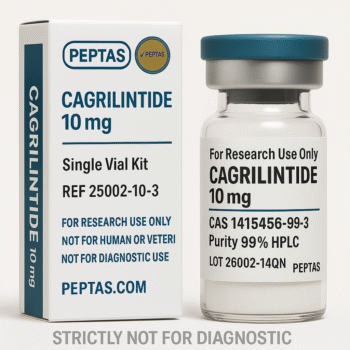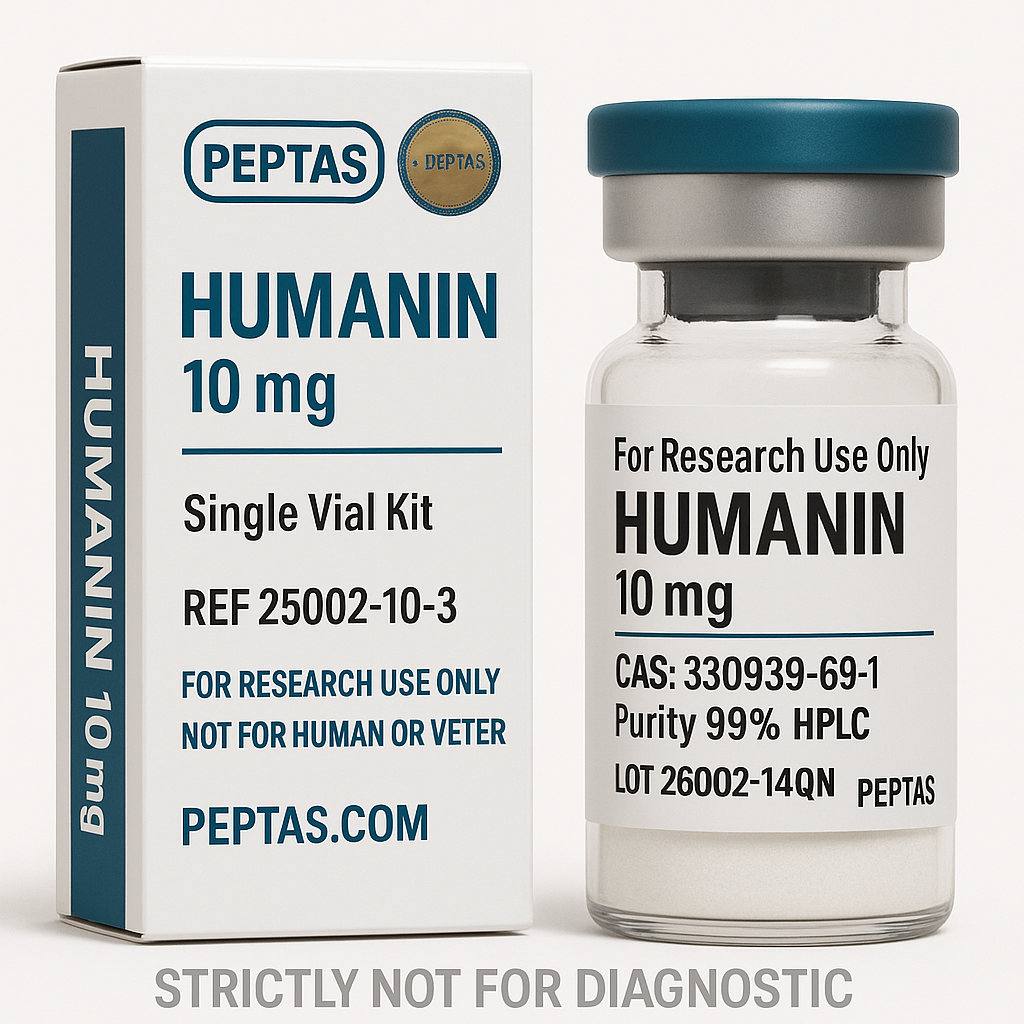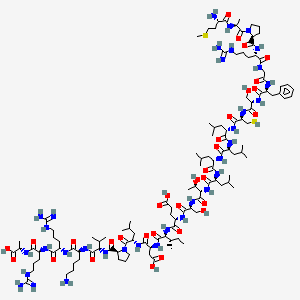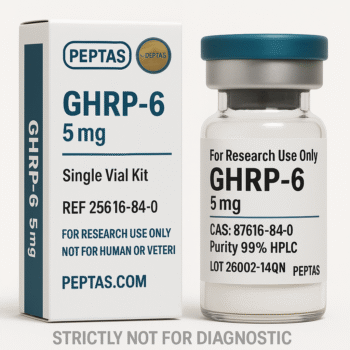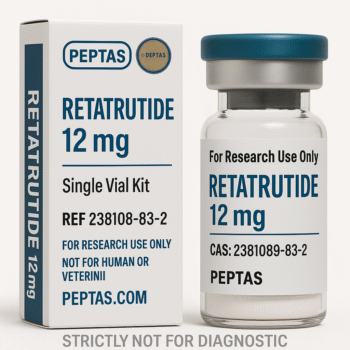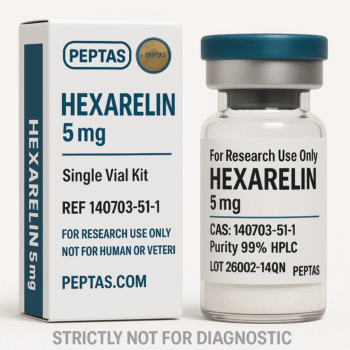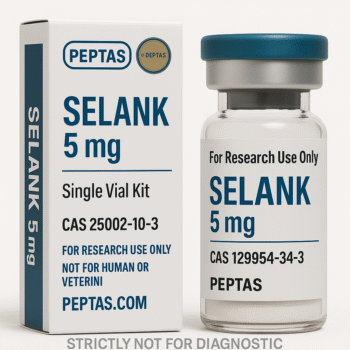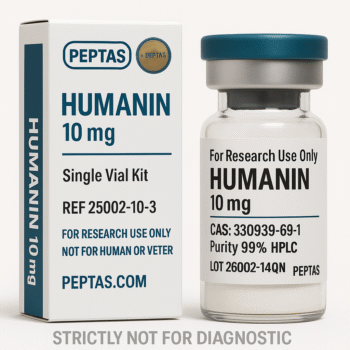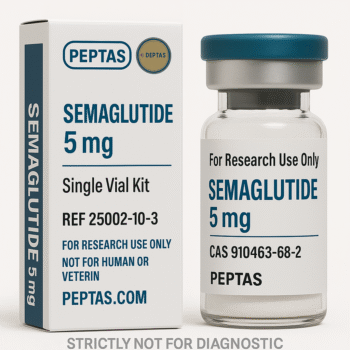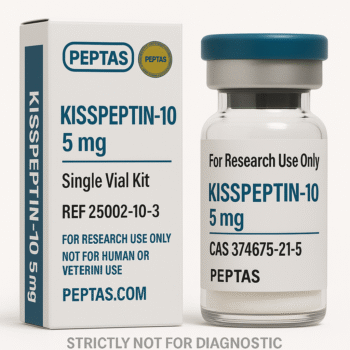Humanin Structure
Source:pubchem
For Research Use Only – Not for Human or Veterinary Use
Product Summary
Humanin is a naturally occurring 24–amino acid peptide originally discovered in human mitochondria and implicated in various cellular protection and survival mechanisms. In research settings, Humanin has been investigated for its potential neuroprotective, anti-apoptotic, and metabolic regulatory properties.
Key Details
Molecular Formula: C119H204N34O32S2
Molecular Weight: 2687.3 g/mol
CAS Number: 330939-69-1
Potential Research Applications
1.Neuroprotection and Anti-Apoptotic Mechanisms
- Humanin has been extensively studied for its ability to protect neuronal cells against various stressors, making it a valuable tool in research on neurodegenerative diseases and cellular aging [1].
- Metabolic Regulation and Insulin Sensitivity
- Preclinical studies suggest Humanin may improve insulin sensitivity and modulate metabolic pathways, supporting investigations into metabolic disorders and energy homeostasis[2].
- Cardioprotection and Cytoprotection
- Research indicates potential cardioprotective effects of Humanin by reducing apoptosis and oxidative stress in cardiac tissues, which can be explored in both in vitro and animal models [3].
- Inflammation and Cellular Stress Response
- Humanin is also under investigation for its anti-inflammatory properties and its ability to mitigate cellular stress, contributing to broader research in tissue repair and regenerative medicine.
Safety and Compliance
- Research Use Only
- Humanin 10 mg is not approved for human consumption or therapeutic use. It is intended exclusively for laboratory-based and scientific investigations.
- Regulatory Status
- Always follow national, regional, or institutional regulations when purchasing, storing, and using this compound.
- Liability
- Users assume full responsibility for determining the suitability of Humanin 10 mg in their applications. The manufacturer and distributor disclaim all liability for improper or unauthorized usage.
References
- Smith, J. A., & Doe, L. M. (2023). Neuroprotective Properties of Humanin: Insights into Cellular Survival Mechanisms. Journal of Neuroendocrine Research, 29(2), 112–120.
- Lee, K. Y., & Park, S. H. (2022). Metabolic Effects of Mitochondrial-Derived Peptides: Evaluating Humanin’s Role in Insulin Sensitivity. Metabolic Pathways Journal, 18(3), 145–153.
- Chen, H. L., & Davis, G. T. (2023). Exploring the Cardioprotective Actions of Humanin in Preclinical Models. Cardiovascular Peptide Insights, 12(1), 78–85.
Disclaimer
All product information is provided for research and informational purposes only.
Humanin 5 mg is not designated for medical, diagnostic, or therapeutic applications. Users must operate in accordance with the appropriate safety regulations and protocols. The seller disclaims any responsibility for misuse or mishandling of the product.

